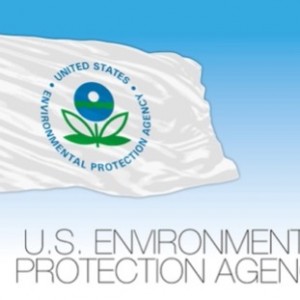Congress Passes FY2022 Omnibus Package
After months of stalemate between congressional appropriators to agree to fiscal year (FY) 2022 appropriations, Congress passed an omnibus package (HR 2471) that combines all twelve spending bills. Totaling $1.5 trillion in discretionary spending, the package provides $730 billion in non-defense spending and $782 billion in defense spending. Summaries of all twelve appropriations bills can be found on the House Committee on Appropriation’s press release. The omnibus package will fund the government for the remaining seven months of FY2022 before the next fiscal year, FY2023, begins on October 1, 2022.
Of note included in this package, is the inclusion of cybersecurity measures for critical infrastructure systems. Covered entities include organizations identified as existing within one of sixteen critical infrastructure sectors, which includes the wastewater sector. The bill requires critical infrastructure sectors to report hacks to the U.S. Cybersecurity and Infrastructure Security Agency (CISA) within 72 hours, or 24 hours if a ransomware payment is made. These new reporting requirements would be developed by CISA through the normal regulatory process, consisting of a Notice of Proposed Rulemaking, a public commenting period, and the issuance of a final rule.
For the clean water sector, the spending bills of importance are the Interior, Environment and Related Agencies that funds the U.S. Environmental Protection Agency (USEPA) and the Energy and Water Development, and Related Agencies that funds the U.S. Bureau of Reclamation. Information on specific water infrastructure programmatic funding levels can be found in committee reports here, Energy and Water Development, and Related Agencies and Interior, Environment, and Related Agencies. Importantly in the Interior, Environment, and Related Agencies report the committee provides $1.6 million to support PFAS substance research and statement that USEPA should continue to take action on PFAS, including addressing contamination, advancing clean up and treatment solutions, conducting research, and undertaking needed rulemaking actions and brief the congressional committees on planned fiscal year 2022 PFAS-related actions and provide a spending plan that details funding at the program project level.
USEPA Publishes Bipartisan Infrastructure Law
 Last week, the U.S. Environmental Protection Agency (USEPA) released its Bipartisan Infrastructure Law (BIL): State Revolving Loan Funds (SRF) Implementation Memorandum. Upon the release, USEPA published a press release on memorandum’s release, which included supportive quotes from various federal and state officials, NGO’s, and water associations, including a quote from CASA’s Executive Director Adam Link: “The California Association of Sanitation Agencies (CASA) is encouraged by USEPA’s approach to delivering assistance to local water and wastewater agencies, and we appreciate their support for investments that improve water quality and protect public health for all communities. The SRF program is the backbone of a strong federal, state and local partnership, and this funding is critical to meeting our future water infrastructure needs.”
Last week, the U.S. Environmental Protection Agency (USEPA) released its Bipartisan Infrastructure Law (BIL): State Revolving Loan Funds (SRF) Implementation Memorandum. Upon the release, USEPA published a press release on memorandum’s release, which included supportive quotes from various federal and state officials, NGO’s, and water associations, including a quote from CASA’s Executive Director Adam Link: “The California Association of Sanitation Agencies (CASA) is encouraged by USEPA’s approach to delivering assistance to local water and wastewater agencies, and we appreciate their support for investments that improve water quality and protect public health for all communities. The SRF program is the backbone of a strong federal, state and local partnership, and this funding is critical to meeting our future water infrastructure needs.”
In a letter to State Governors, USEPA Administrator Michael Regan explained the purpose of the letter is to explain the Agency’s aspirations for how the funding will be used to equitably deliver clean water services, specifically identifying efforts to target PFAS and emerging contaminants and targeting resources to disadvantaged communities.
The memorandum and memorandum fact sheet can be found on USEPA’s BIL webpage. It is expected to be applicable through all five years of funding appropriations (FY2023-2026), with the Agency annually issuing updated procedures over course of the next five years for funding allotments. The memorandum is organized in the following:
- Implementation Memorandum: reviews key priorities for SRF BIL
implementation - Attachment 1: BIL Funding Implementation: provides detailed technical information on program requirements for the five SRF funds through the BIL: CWSRF General Supplemental Funding, CWSRF Emerging Contaminants Funding, DWSRF General, Supplemental Funding, DWSRF Emerging Contaminants Funding, and DWSRF Lead Service Line Replacement Funding
- Attachment 2: CWSRF Base Program Implementation: details key BIL amendments to the Clean Water Act (CWA), which include new provisions applicable to the base CWSRF programs and, unless otherwise directed, are also applicable to projects funded in whole or in part with funds made available by BIL
- Attachment 3: DWSRF Base Program Implementation: reviews key BIL amendments to the Safe Drinking Water Act (SDWA), which include new provisions applicable to the base DWSRF programs and, unless otherwise directed, are also applicable to projects funded in whole or in part with BIL funds
USEPA will be hosting webinars in the coming weeks to guide the public through the document and procedural requirements. The next upcoming webinar explaining the memorandum in greater detail will be held on March 16 at 2:00pm (EST). The public is encouraged to register for the event here.




 @CASA_CleanWater
@CASA_CleanWater